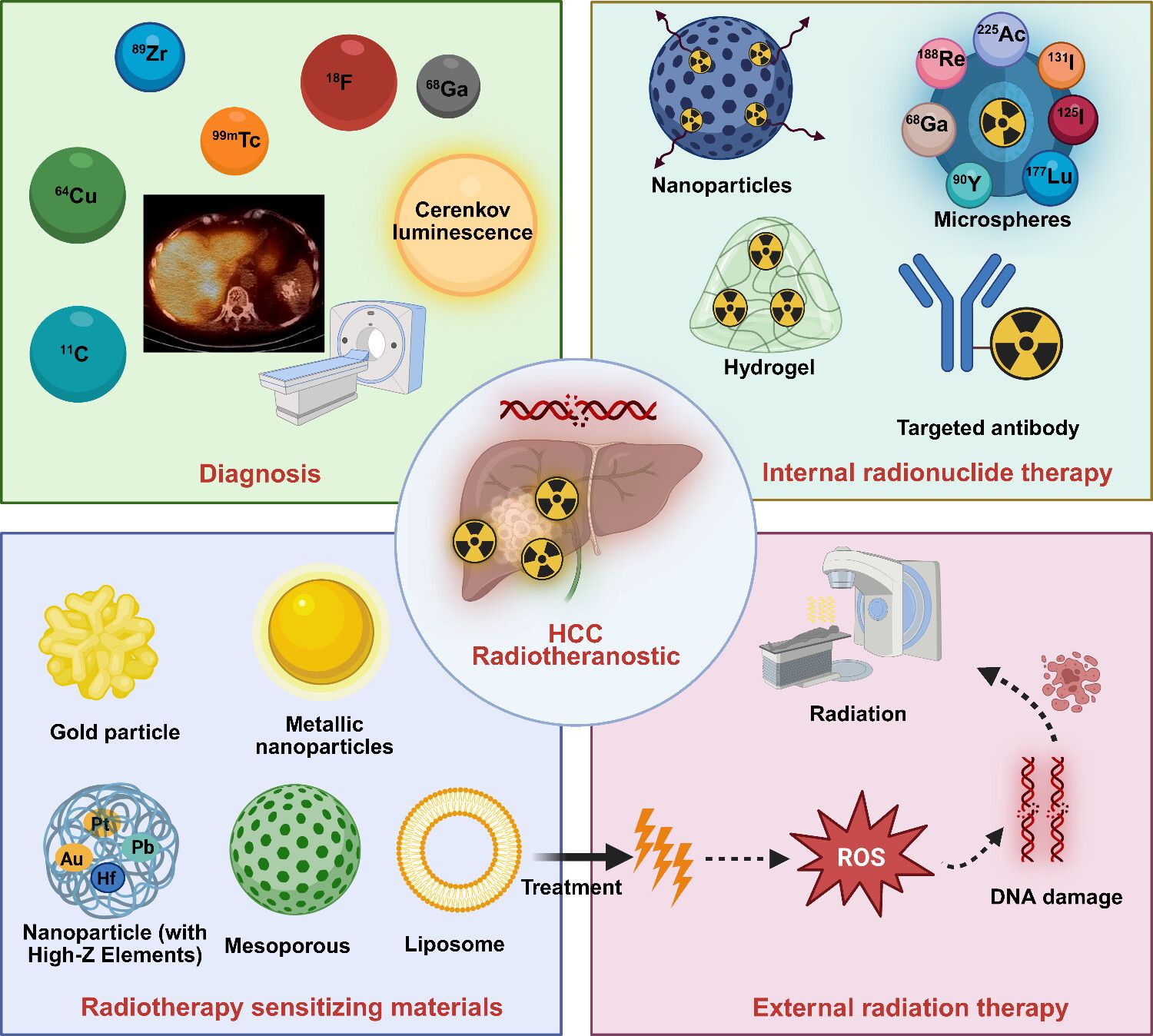Abstract
Radiotherapy, as an important means of treating hepatocellular carcinoma (HCC), has shown unique therapeutic advantages, especially in patients who are unable to undergo surgery or transplantation. It mainly includes external radiotherapy, transarterial radioembolization and intratumoral radioactive particle implantation. However, under the influence of factors such as the hypoxic characteristics of the liver tumor microenvironment and the radioresistance of tumor cells, the effect of radiotherapy may be unstable and may cause side effects, affecting the quality of life of patients. In recent years, with the development of nanotechnology, drug delivery systems based on micro-nanomaterials have provided new solutions for improving the effect of radiotherapy for HCC. Despite this, the application of micro-nano drug delivery systems in the treatment of HCC still faces some challenges, mainly including the in vivo safety and in vivo metabolism of micro-nano materials. This article reviews the latest progress of micro-nano materials in the treatment of HCC, especially their application in radiosensitization and their clinical translation potential. This article systematically analyzes the role of micro-nanomaterials in external or internal radiotherapy sensitization and radioimmunotherapy and explores the advantages of micro-nanomaterials in improving the treatment effect of HCC.

文章链接:https://pubs.acs.org/doi/10.1021/acsami.5c05525